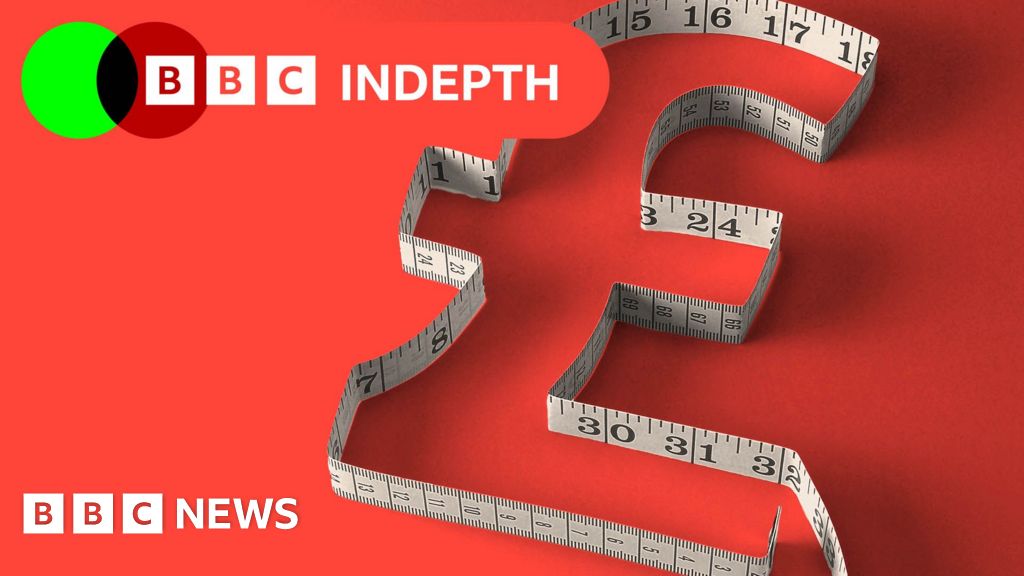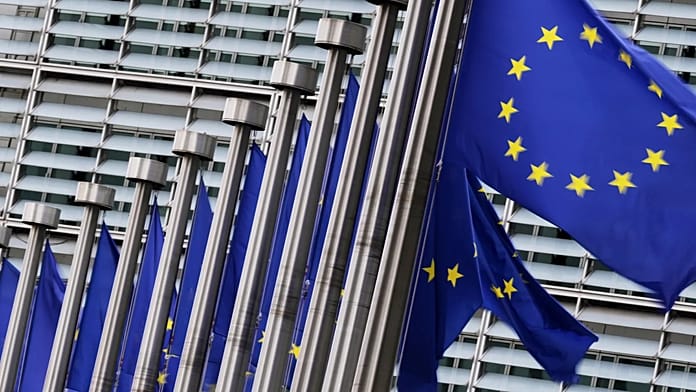'Don't get caught in these summer scams!' Jasmine Birtles reveals how you can spot the fraudsters
From fraudulent festival tickets to AI spam callers stealing your information, scams are on the rise. Here’s how to spot some of the latest scams this summer.Jasmine Birtles is founder of the self-help financial site MoneyMagpie.com . Do you have a money question for Jasmine? Get in touch by emailing money@gbnews.uk .The Unexpected Security StepYou answer the phone and it seems to be customer service from your bank or building society, just checking in or offering help with your account. They might claim they have spotted transactions that could be fraudulent, and need you to confirm if you made them. During the summer, scams like this rise as they work on the assumption more people will travel abroad or have unusual transactions (such as more days out, ticket sales etc) that their bank is likely to query.Most people now know to end a call if they are asked for their full PIN or banking password. It’s a classic sign of a scam. However, the rise in banking apps means hackers and fraudsters can now send spoof instructions which ask you to confirm your face unlock or fingerprint to pass a security check. Don’t do it! This is a new way to get your biometric data, so that scammers can use your details to get past tighter banking security.Ticket Resellers Outside of Official PlatformsYou only need to look at the frenzy for Oasis concerts to see how big events can make people drop their guard as they try to get their hands on tickets, only to fall foul of ticket scams. But most ticket platforms now use unique QR codes for entry, name-specific tickets against ID, or other similar security techniques. This means that buying a ticket from someone outside of the official platforms mean you’re buying a useless ticket that’ll have you turned away on entry at the venue.Scalpers will often use bots to flood ticket sites to take advantage of early sales and scoop up tickets, reselling them for five times or more of the ticket price. Artists are increasingly aware of this and trying to prevent fans from being duped. Most recently, tickets for Yungblud’s gigs have rocketed in price since Ozzy Osbourne’s death and his charity release of Changes he performed at Ozzy’s last concert. Yungblud made a post on his social media after his arena tour sold out – telling fans not to buy from resellers (instead, he added additional tour dates).Only buy from official ticket platforms like Ticketmaster, LiveNation, and StubHub, or official resellers like ViaGoGo. Ticketswap is another resale site, and it caps tickets at 20 per cent above the price on the ticket to prevent people from overcharging. For smaller events, get in touch with the event organiser to ask about their official resale policy and recommended platform or route.Do you have a money story you’d like to share? Get in touch by emailing money@gbnews.uk.Congratulations! You Have Won… Fraud!If you receive an email, text, or letter claiming that you’ve won a competition or lottery prize you have no memory of entering, ignore it. You haven’t just won £5000, but when you click on the link, visit a website, or hand over your details on the phone to claim the prize, you’ll have given fraudsters enough information to steal your identity and commit fraud.When it comes to prizes, if something sounds too good to be true, it is. If you think a friend or family member entered you into a raffle or draw, ask them about it before doing anything. And if you have no recollection of entering such a contest, delete the message or throw the letter away.The same rule applies for people claiming they are inheritance hunters, who find long-lost family members for inheritance claims of huge sums. While there are people who do this for a job, it’s easy to check online if they are a legitimate company. Find their website details, cross-check against Companies House details, and type in their company name with ‘fraud’ ‘scam’ and ‘review’ to see what comes up. Unless you are very, very, lucky, it is extremely unlikely your long-lost great-great-great-aunt Mildred left you a million pounds.Land Registry FraudDid you know that it’s relatively easy for someone to place a lien against your property? All they need is a few letters from your mailbox to ‘prove identity’ or residence at the address.But, more worrying, is that people have been known to collect enough information about the owner to apply to the Land Registry to change the property deeds into a different name. Then, you’re living in a house that technically isn’t yours – and it can be a very costly experience to get it back.Fraud like this is more likely to occur when you are away for the summer, as the thiefs can get locks changed while you’re away, with the deed and ID gained from stolen letters to ‘prove’ ownership. It is also a common fraud for landlords with empty or tenanted properties – either their tenant or squatters find a way to steal the house via the Land Registry.You can prevent this happening by signing up to Land Registry alerts, wh

From fraudulent festival tickets to AI spam callers stealing your information, scams are on the rise. Here’s how to spot some of the latest scams this summer.
Jasmine Birtles is founder of the self-help financial site MoneyMagpie.com . Do you have a money question for Jasmine? Get in touch by emailing money@gbnews.uk .
The Unexpected Security Step
You answer the phone and it seems to be customer service from your bank or building society, just checking in or offering help with your account. They might claim they have spotted transactions that could be fraudulent, and need you to confirm if you made them.
During the summer, scams like this rise as they work on the assumption more people will travel abroad or have unusual transactions (such as more days out, ticket sales etc) that their bank is likely to query.

Most people now know to end a call if they are asked for their full PIN or banking password. It’s a classic sign of a scam. However, the rise in banking apps means hackers and fraudsters can now send spoof instructions which ask you to confirm your face unlock or fingerprint to pass a security check. Don’t do it! This is a new way to get your biometric data, so that scammers can use your details to get past tighter banking security.
Ticket Resellers Outside of Official Platforms
You only need to look at the frenzy for Oasis concerts to see how big events can make people drop their guard as they try to get their hands on tickets, only to fall foul of ticket scams. But most ticket platforms now use unique QR codes for entry, name-specific tickets against ID, or other similar security techniques. This means that buying a ticket from someone outside of the official platforms mean you’re buying a useless ticket that’ll have you turned away on entry at the venue.
Scalpers will often use bots to flood ticket sites to take advantage of early sales and scoop up tickets, reselling them for five times or more of the ticket price. Artists are increasingly aware of this and trying to prevent fans from being duped. Most recently, tickets for Yungblud’s gigs have rocketed in price since Ozzy Osbourne’s death and his charity release of Changes he performed at Ozzy’s last concert. Yungblud made a post on his social media after his arena tour sold out – telling fans not to buy from resellers (instead, he added additional tour dates).
Only buy from official ticket platforms like Ticketmaster, LiveNation, and StubHub, or official resellers like ViaGoGo. Ticketswap is another resale site, and it caps tickets at 20 per cent above the price on the ticket to prevent people from overcharging. For smaller events, get in touch with the event organiser to ask about their official resale policy and recommended platform or route.
Do you have a money story you’d like to share? Get in touch by emailing money@gbnews.uk.
Congratulations! You Have Won… Fraud!
If you receive an email, text, or letter claiming that you’ve won a competition or lottery prize you have no memory of entering, ignore it. You haven’t just won £5000, but when you click on the link, visit a website, or hand over your details on the phone to claim the prize, you’ll have given fraudsters enough information to steal your identity and commit fraud.
When it comes to prizes, if something sounds too good to be true, it is. If you think a friend or family member entered you into a raffle or draw, ask them about it before doing anything. And if you have no recollection of entering such a contest, delete the message or throw the letter away.
The same rule applies for people claiming they are inheritance hunters, who find long-lost family members for inheritance claims of huge sums. While there are people who do this for a job, it’s easy to check online if they are a legitimate company. Find their website details, cross-check against Companies House details, and type in their company name with ‘fraud’ ‘scam’ and ‘review’ to see what comes up. Unless you are very, very, lucky, it is extremely unlikely your long-lost great-great-great-aunt Mildred left you a million pounds.
Land Registry Fraud
Did you know that it’s relatively easy for someone to place a lien against your property? All they need is a few letters from your mailbox to ‘prove identity’ or residence at the address.
But, more worrying, is that people have been known to collect enough information about the owner to apply to the Land Registry to change the property deeds into a different name. Then, you’re living in a house that technically isn’t yours – and it can be a very costly experience to get it back.
Fraud like this is more likely to occur when you are away for the summer, as the thiefs can get locks changed while you’re away, with the deed and ID gained from stolen letters to ‘prove’ ownership. It is also a common fraud for landlords with empty or tenanted properties – either their tenant or squatters find a way to steal the house via the Land Registry.
You can prevent this happening by signing up to Land Registry alerts, which email you when someone runs a check or changes something your property. This will immediately notify you of suspicious activity, giving you time to contact the Land Registry and prevent your house from being stolen from underneath your very feet.
LATEST DEVELOPMENTS:
- 'How to make money from your summer holiday', Jasmine Birtles reveals must-know side hustle tips
- 'How much inheritance tax do I owe on my pension after withdrawing 25% in savings?' Jasmine Britles answers your questions
- Savings alert: Jasmine Birtles reveals how to slash your holiday debt this summer - 'Be careful!'

Spot the fraudsters
There are some quick tips you can follow to avoid being taken in by a sophisticated scam.
- Never give your details to someone who contacts you out of the blue
- If in doubt, hang up, find the official phone number online, and call back. Never call back from your caller list, as it’s easy to spoof numbers that look like legitimate ones.
- Keep an eye on your bank account for unusual transactions – no matter how small
- If something seems to good to be true, it usually is. Trust your gut feeling!
- Never give anyone your account information, full password, or full PIN for your banking information.
If you think you might have been the victim of fraud, contact your bank in the first instance. You can also report it to Action Fraud.







































